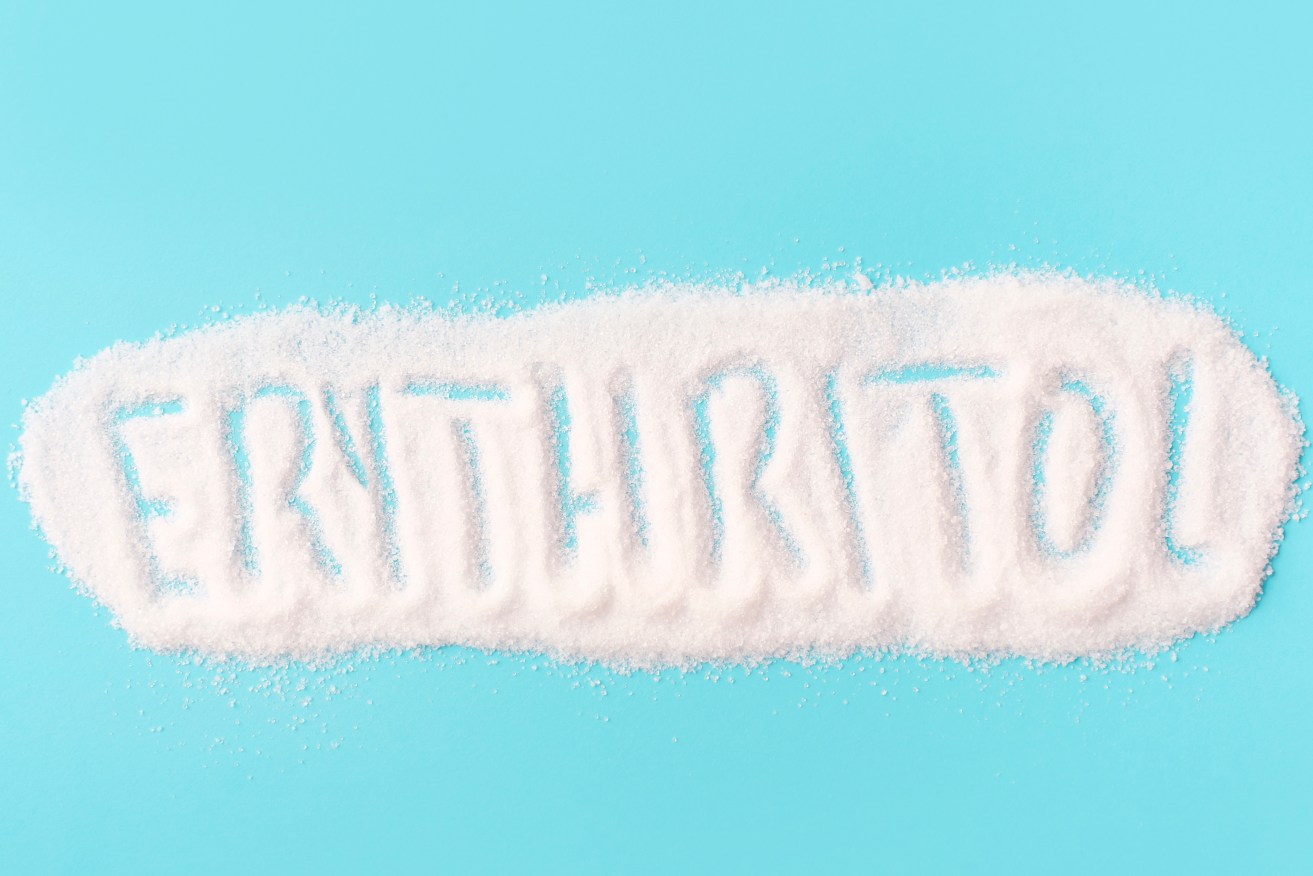Popular sweetener linked to higher risk of heart attack and stroke


Artificial sweetener erythritol looks and tastes like sugar. And both can lead to heart attacks and strokes. Photo: Getty
There’s no surprise that erythritol is such a popular sugar substitute, being so much like the real thing.
It’s nice and crystally and looks like sugar.
It’s a type of sugar alcohol that occurs naturally, in low amounts, in fruit and vegetables.
It tastes like sugar – with no calories and no chemical aftertaste. And it’s not cloyingly sweet, like other sugar substitutes.
And new research suggests that, just like real sugar, erythritol is bad for your heart.
Search for a sweet spot
Too much sugar raises your blood pressure and increases the risk of heart disease and stroke.
It also promotes inflammation, which leads to excess stress on the heart and blood vessels. This also increases the risk of premature death and stroke.
This is why people who are overweight and at greater risk of developing type 2 diabetes and heart disease will seek out options that claim to be healthy sugar substitutes.
A healthy option for unhealthy people?
The new study, from the Cleveland Clinic, essentially investigated whether or not erythritol – which is less sweet than sugar and used in greater amounts as an additive – is a healthy option for unhealthy people.
The researchers looked at 4000 older participants from the US and Europe who were already diagnosed with cardiovascular disease. This included those who had suffered a non-fatal heart attack, stroke or eventually died.
Also included were people at high risk of developing cardiovascular disease because of existing conditions such as hypertension or type 2 diabetes. The participants were aged in their 60s and 70s.
The researchers found that participants with elevated blood erythritol levels were “associated with an increased chance of cardiovascular events, like heart attack or stroke” within three years.
Those with the highest blood concentrations of erythritol were at twice the risk of a cardiac event than those with the lowest concentrations.
Clotting a risk in healthier people
The researchers then examined the effects of adding erythritol to either whole blood or isolated platelets.
In response to injury, cell fragments will clump together to stop bleeding. But they also contribute to the development of thrombosis that can cause a stroke and heart attack.
Erythritol was seen to increase clot formation in models of arterial injury.
What does this mean?
These findings are highly suggestive, but not conclusive.
Lead researcher Stanley Hazen is chairman of Cleveland Clinic’s Department of Cardiovascular and Metabolic Sciences.
Dr Hazen said the results support “launching further investigation and clinical trials to determine the effects of polyols, a group of sugar alcohols including erythritol, on patients long term”.
He said that sweeteners like erythritol, “because they appear naturally, had minimal requirements to pass through the regulatory process, but there needs to be more in-depth research into long-term effects”.
The Calorie Control Council, an industry association, told CNN the study results were “contrary to decades of scientific research”.
The council said the safety of sweeteners like erythritol was evidenced by regulatory approval for use in foods and beverages.
But how safe?
Erythritol is a relatively new additive.
The authors of the new paper write that “despite the growing incorporation of artificial sweeteners into the food chain, their cardiovascular risks have seldom been investigated”.
They cite a “small prospective study”, in which plasma levels of erythritol among college students were associated with weight gain.
In another study, they write, “erythritol levels were associated with the onset of type 2 diabetes”.
In September, the British Medical Journal published a study – involving more than 100,000 middle-aged and mainly female participants – that found artificial sweeteners were linked to a 9 per cent higher risk of any type of cardiovascular problem (including heart attacks) and an 18 per cent greater risk of stroke.
More studies to come, no doubt.








